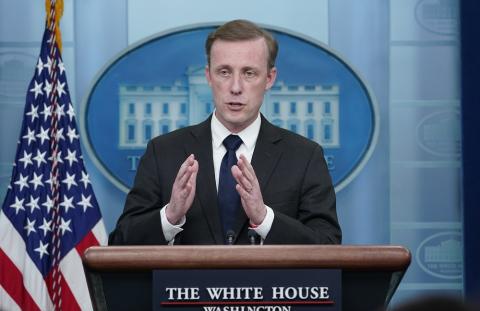
UN rights chief: Proposed law means British soldiers won’t be held accountable
UK troops prosecuted for alleged crimes in Iraq, Afghanistan
LONDON: A group of UK politicians are looking to reverse government plans to introduce a bill that could restrict the prosecution of British soldiers accused of war crimes in countries including Afghanistan and Iraq.
The cross-party group, made up of members of the House of Lords, hopes to strike down the controversial overseas operations bill on Tuesday.
It comes after the UN’s human rights chief warned the UK government that the draft law might undermine the country’s human rights obligations.
The prosecution of British soldiers for alleged crimes in conflicts in Iraq and Afghanistan has caused long-term problems for the UK’s military, government and courts.
UK Defense Secretary Ben Wallace has argued that the bill will protect service personnel and veterans from “vexatious claims and endless investigations.”
But the cross-party group, headed by former NATO Secretary-General Lord Robertson, wants torture and other war crimes excluded from the five-year legal limit on prosecutions proposed in the bill.
The group argues that British soldiers will be at greater risk from the International Criminal Court if the bill passes, as prohibition against torture is absolute under international law and cannot be ignored by domestic courts.
“Vexatious claims are a serious problem faced by troops, but the issue has to be solved in a way which respects the UK’s international obligations,” said the main opposition Labour Party’s shadow attorney general, Lord Falconer, another member of the group.
UN Commissioner on Human Rights Michelle Bachelet warned that the five-year limit proposed by the government “will make it substantially less likely” that UK soldiers alleged to have committed war crimes “will be held accountable for serious human rights violations.”
War crime and torture prosecutions often involve lengthy legal processes that mean cases take many years to draft before being heard in court.
In one high-profile case, an Afghan citizen brought a civil claim in the British courts after his father, two brothers and cousin were killed during a raid in Afghanistan in 2011.
The case is one of 33 alleged executions undertaken by Britain’s elite SAS special forces. Evidence of later executions emerged after one SAS officer detailed the raid as “the latest massacre.”
Cross-party members are expected to provide majority support for the amendment on Tuesday, making it likely that the bill will be put back before MPs later this month.
Another amendment, supported by Lord Stirrup, former head of the UK armed forces, proposes that no time limit be put on civil claims brought by service personnel against the Ministry of Defense.
The government bill argues that the limit should be set at six years. In response to criticism, a spokesperson said in a statement: “None of the government’s proposals will erode the rule of law. The Ministry of Defence and our service personnel can still be held to account for wrongdoing. Military operations will continue to be governed by international humanitarian law, including the Geneva conventions.”












